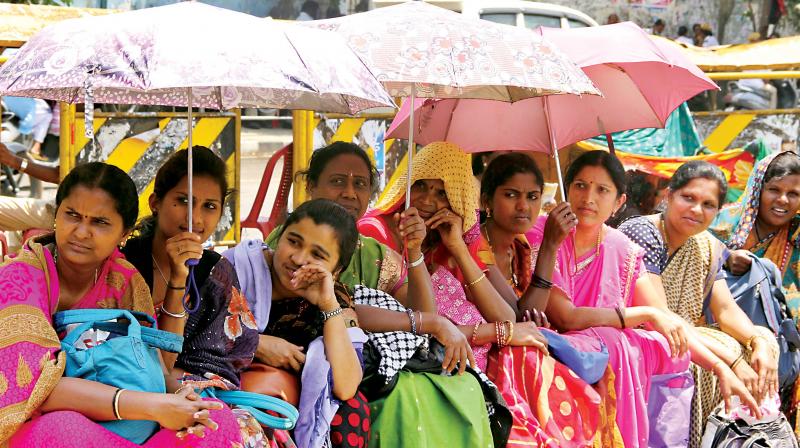The chat room: Anganwadi workers indispensable, government must make peace'

Thousands of Anganwadi workers took part in a four-day protest at Freedom Park, demanding a hike in wages. Social activist Nina Nayak tells Joyeeta Chakravorty that although they are indispensable to the system and justified in their demands, the sheer number of these volunteers poses a challenge to the exchequer
She has been a child rights activist for years and has her day full with a meeting lined up after lunch and also preparing for a TED talk, but Nina Nayak takes time out to talk about the four-day-long strike by women anganwadi workers in Bengaluru for a hike in wages that ended recently . "What they are asking for is justified and there is a need to flow money into the system to meet their demands," she says without hesitation.
Having been a former member of the National Commission for Protection of Child Rights, and a former chairperson of Karnataka State Commission for the Protection of Child Rights her views are clear-cut on the issue.
“The anganwadi worker knows she has become indispensable and their numbers are huge. But then where is the money in the exchequer to meet their demands? Some money should have been put aside," she says. Pausing to recall the years when she herself trained anganwadi workers, she continues, "We have come a long way since the Integrated Child Development Services (ICDS) was launched in 1975. Back then it was very informal. We informally recruited people, but slowly with more knowledge about the quality of care needed, child mortality and the like, more and more responsibility has been thrust on the anganwadi workers, who are expected to help improve the health and nutrition levels of poor Indian children below six years of age."
While reflecting on the hundreds of women who travelled long distances to raise their voices against their meagre salaries, she observes candidly, "Sadly, they do not have the expertise to handle children. They are honorary workers that the public health department depends on for providing nutrition to lactating mothers and newborns, and also to children between three and six years of age. This is a lot of work and they are overwhelmed with the responsibility in the absence of conveyance or other perks."
Although they work with auxiliary nurse midwives, commonly known as ANMs , they receive only a capsule of training for some 40 days, which is not enough to get them into the system, she believes.
While the anganwadi workers called off their four-day strike on Thursday subject to the outcome of the meeting scheduled for April 10, Ms Nayak suggests the government make peace with them first and then create a cadre of workers with a minimum of education. "I have trained anganwadi workers and they are very smart and keen to learn. Creating a cadre is important for pay scales to be defined. They should be educated with courses that can be scaled up."
She goes on to conclude, “The state should bring in some peace now and form a task force to get a better picture of the situation."

